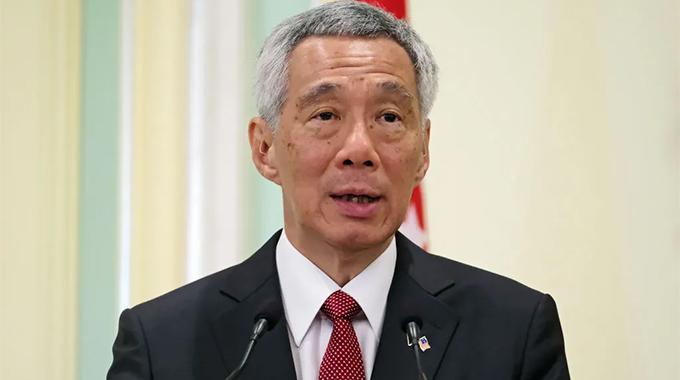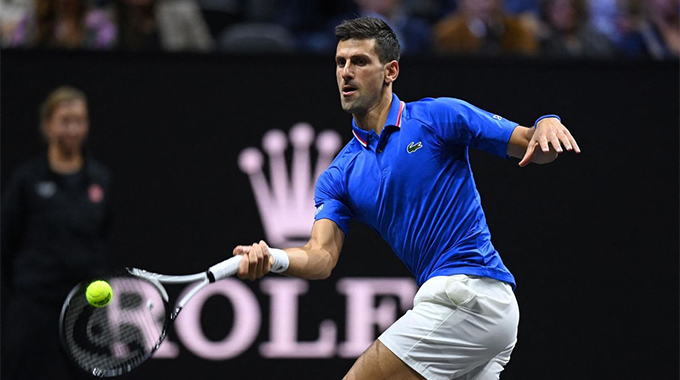US not in position to force allies to take sides against China

Sun Xihui
Recently, China’s surrounding areas, especially the region of Southeast Asia, have attracted much attention, with several major summits taking place. China and the US are actively engaged in summit diplomacy, not only holding summit between the two sides’ heads of state, but also holding bilateral dialogues with leaders of other countries respectively to promote their own international agendas and foreign policies.
The Joe Biden administration has continued to promote regional strategy and some measures that aim to contain China in some specific areas, including technology decoupling and reshape of regional supply chains. But as China becomes more powerful, Washington has to take into consideration the security risks of competing with China and work to intensify strategic competition with China while avoiding a military clash with China.
The Biden administration was eager to meet with the Chinese head of state to avoid misjudgement and conflict and resume cooperation in areas like military exchanges, climate change, and drug control.
This is because of internal and external pressures like the midterm elections, severe inflation, and several countermeasures China has put in place since Pelosi’s reckless visit to Taiwan.
During the summit, both sides elaborated on their own policy stances on major concerns, bilateral relations, and significant global challenges.
They also reached a number of important consensuses which point a clear direction to the development of bilateral ties.
Washington’s desire to stabilise relations does not mean that it has changed its policy towards China. The Biden administration still emphasizes competition with China. Compared with the Trump administration, it pays more attention to the role of allies. The Biden administration has stepped up its diplomatic efforts with Asia-Pacific nations and seeks to isolate China by strengthening cooperation with its allies, which, however, prompted regional countries to face the dilemma of taking sides between two major powers.
However, most US allies are very resistant to take sides. For example, Prime Minister of Singapore Lee Hsien Loong indicated that ASEAN member states do not want to choose sides. Canberra has also sought to mend ties with China. In addition, German Chancellor Olaf Scholz took a business delegation on his trip to Beijing recently, and reached a series of cooperation agreements.
The fundamental reason that this situation occurs is the contrasts of strengths and differences in interests. First, it is foolish to choose sides between two rival powers. China and the US are the two countries with the strongest comprehensive strength and international influence in the world. The state of China-US relations not only affects the cooperation and competition between the two countries, but also has a huge impact on the global situation. For other countries, it is not in their fundamental interests to get involved in confrontation between China and the US, or to choose sides between the two.
Second, decoupling with China is not in the interests of US allies and partners. China and the US are the two largest economies in the world. China-US relations deeply affect the world economy. In the eyes of the vast majority of countries, a “decoupling” of economics or technology is not conducive to their own economic development.
Third, there are cognitive differences between the US and its allies and partners. Most Asia-Pacific countries and some of the US allies and partners have a high degree of economic dependence on China’s economy, and they have different perceptions of their strategic relationship with China. The US is the only superpower in the world today. It regards itself as the global hegemon and the designer and defender of the West-led international order. It has strong hegemonic anxiety with China’s rapid development. Nonetheless, US allies and partners in the West, or non-Western allies which share Western values and political ideology have a certain degree of anxiety about China, while most other allies and partners have no obvious strategic anxiety about China, and hope to benefit from China’s development.
In addition, China actively conducts diplomatic work, expounds China’s position and policies in a timely and comprehensive manner, and provides wisdom and solutions to promote peace and development at the regional and global levels. This has made many US allies and partners improve their attitude toward China.
There are indications that most US allies and partners do not want to choose sides between China and the US, and dare not and cannot fully follow the US in restricting China. This not only reflects the reality that China’s strength and influence have increased significantly, but also reflects the decline of US influence on its allies and partners, and that the political and economic coercion and values-guided methods cannot achieve the goals of the US. If the US does not change its zero-sum thinking and understanding of China, it will be difficult to completely change its China policy and its expectations for allies and partners. However, this is not in line with the will of all countries to expect world peace and common development.
The author is an associate research fellow with the National Institute of International Strategy at the Chinese Academy of Social Sciences. — globaltimes.com.cn







Comments